Ilan ang mga pasahero na maaaring dalhin ng isang electric tuk tuk?
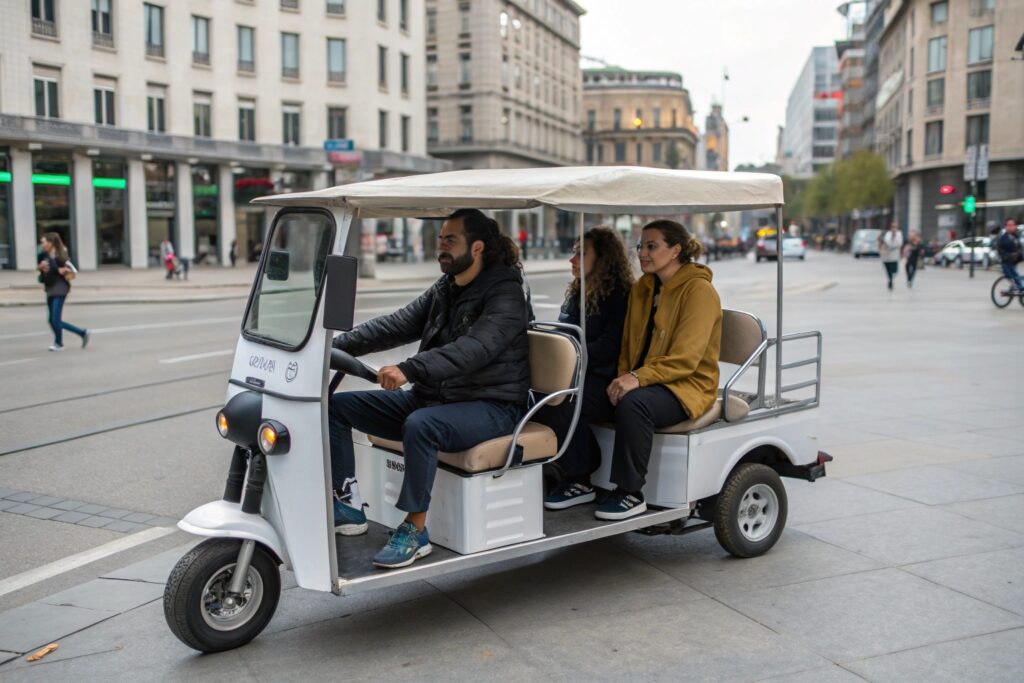
You’re planning a shuttle service or taxi fleet, but you’re unsure if an e-tuk tuk fits enough people. Choosing the wrong capacity means lower profits or inefficient service. A standard electric tuk-tuk typically carries three passengers plus the driver. However, many variations exist, with models available for four, six, or even eight passengers, depending on […Ng
Bakit piliin ang Bajaj Style E-Tuk Taxis para sa panloob na shuttle?
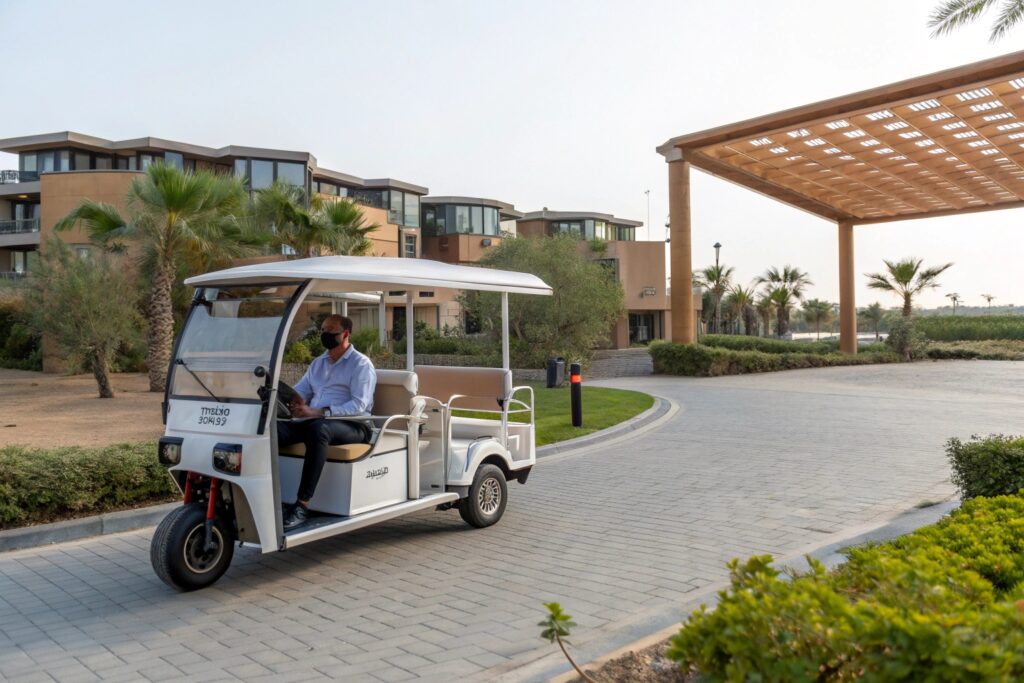
Your internal shuttle is noisy, polluting, and expensive to run. This hurts your budget and your brand image. Electric tuk-taxis offer a quiet, clean, and cost-effective solution for you. Bajaj-style e-tuk taxis are an excellent choice for internal shuttles because they drastically cut operating costs, run quietly with zero emissions, and have a compact design […Ng
Paano mabawasan ang gastos ng armada para sa mga maliliit na proyekto sa kalinisan ng bayan?
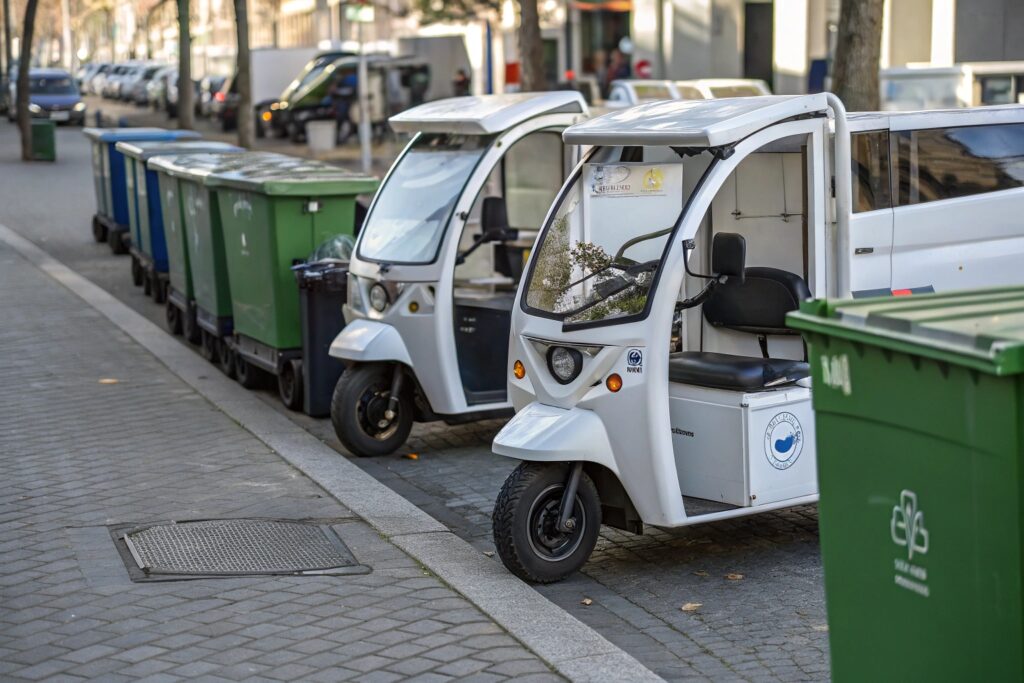
Are high fuel and maintenance costs for your sanitation fleet straining your town’s budget? These expenses limit your ability to keep every street clean, frustrating residents and officials. To reduce fleet costs, you must switch to electric vehicles, optimize the fleet size, implement preventive maintenance, and use route planning software. This combined approach directly lowers […Ng
Anong mga dokumento ang kailangan mo upang mag -import ng isang electric 3 wheeler mula sa china?
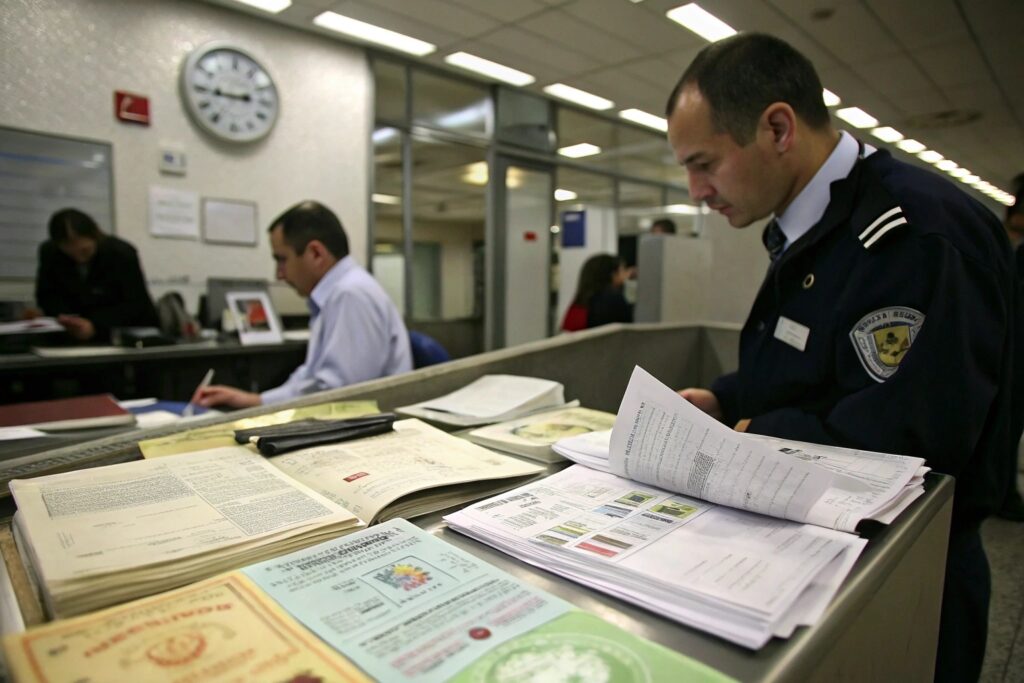
Your container of electric trikes is stuck at the port, and storage fees are piling up. You need the right paperwork, and you need it now to save your investment. To import electric 3-wheeler from China, you need three key sets of documents: commercial documents (invoice, packing list), shipping documents (Bill of Lading), and country-specific […Ng
Nangungunang mga pitfalls upang maiwasan sa electric three-wheeler import deal mula sa China
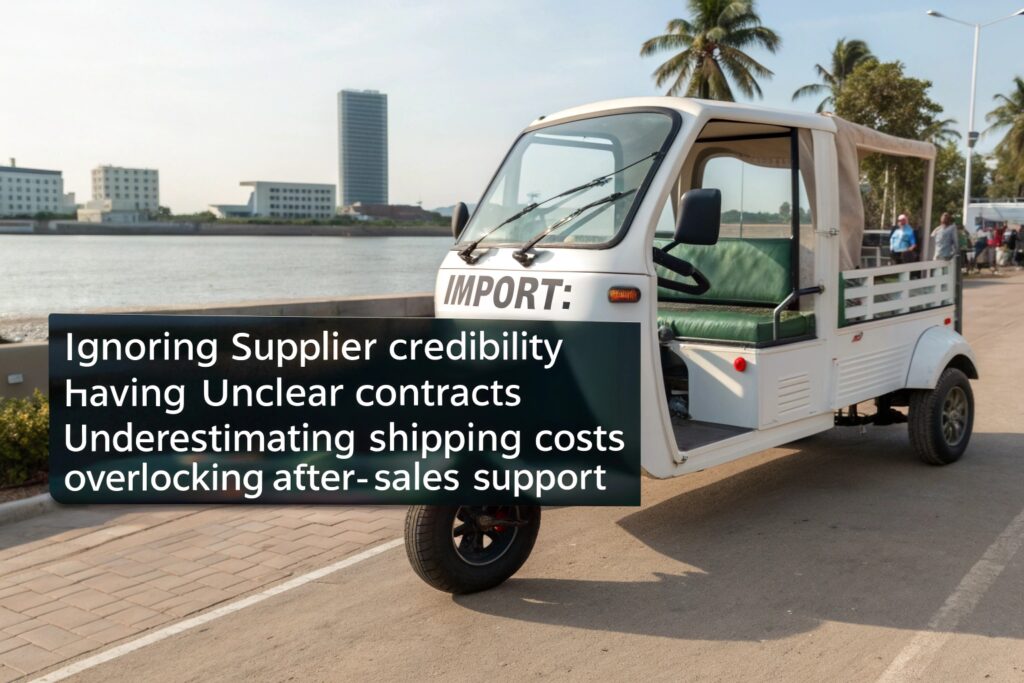
Found a great price on an electric three-wheeler from China? An exciting deal can quickly turn into a costly nightmare if you’re not careful. The biggest mistakes often happen long before the container is even shipped. The most common 3 wheeler import pitfalls include choosing the wrong supplier, having unclear product specs, ignoring certifications, and […Ng
Aling mga bansa ang nagpapahintulot sa mga electric trike para sa paghahatid ng parsela?
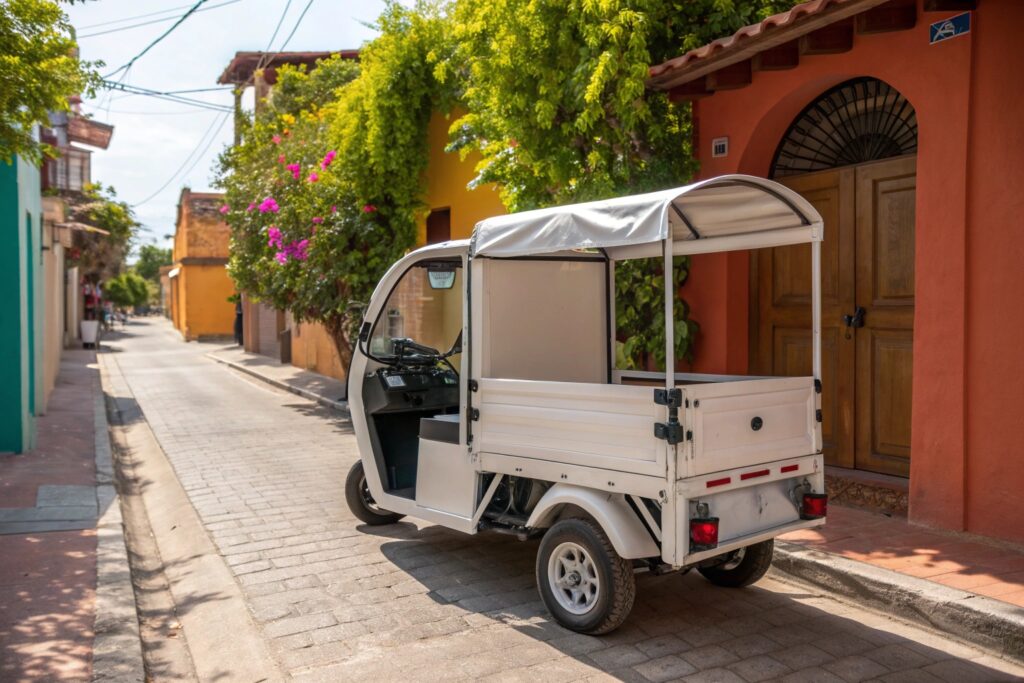
Wondering where to import electric trikes without getting caught in legal headaches? Entering a new market blind can lead to seized containers and lost investments. The good news is, many countries have simple rules; you just need to know where to start. Globally, many countries in Asia, Africa, and Latin America permit electric trikes for […Ng
Paano mag -pitch ng mga electric trikes sa mga lokal na serbisyo ng courier?
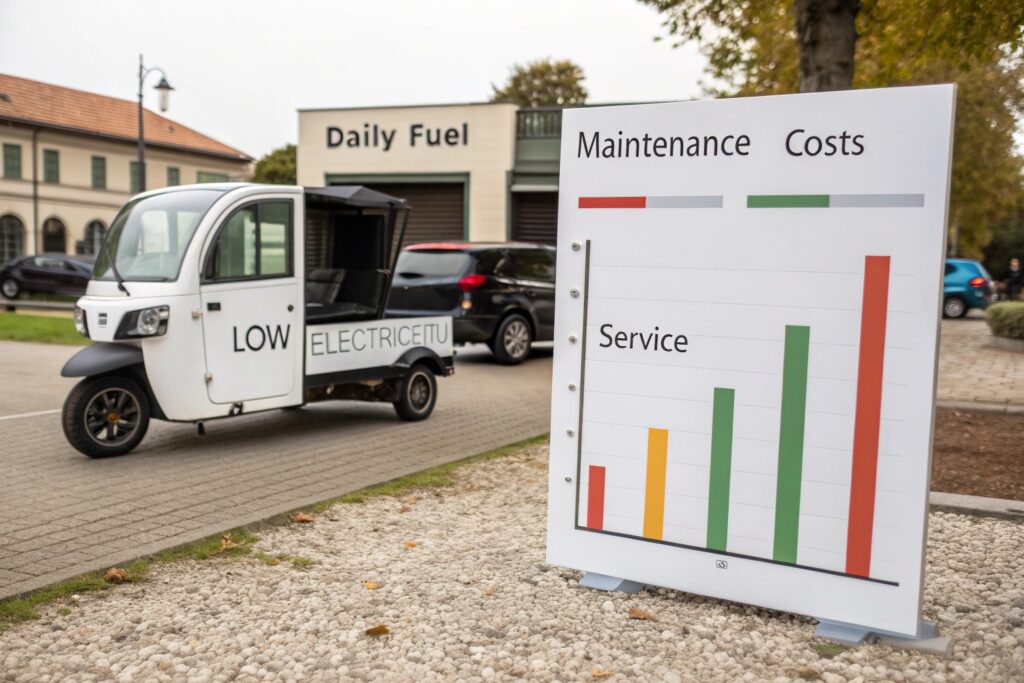
Finding it tough to show courier services the value of electric trikes? They are losing money on fuel and getting stuck in traffic, but are hesitant to switch to a new technology. The key is to present a solid business case, not just technical specs. To successfully pitch electric trikes, you must focus on their […Ng
Paano ka makakapagtayo ng isang naka -brand na negosyo sa paghahatid na may isang electric tricycle van?
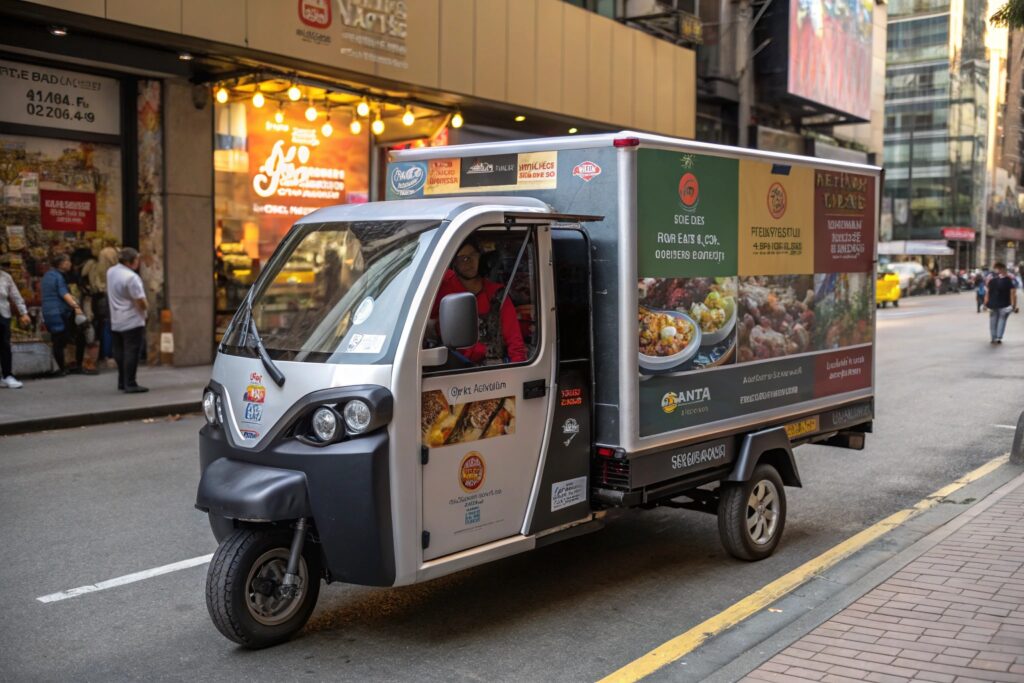
Starting a delivery business is tough. You need a reliable vehicle, but you also need to stand out from the competition without a huge marketing budget. What if your vehicle was your marketing? An electric tricycle van is the perfect platform for a branded delivery business. It combines the low operational cost of an EV […Ng
3-wheel scooter pickups kumpara sa iba pang mga sasakyan para sa huling milya na paghahatid
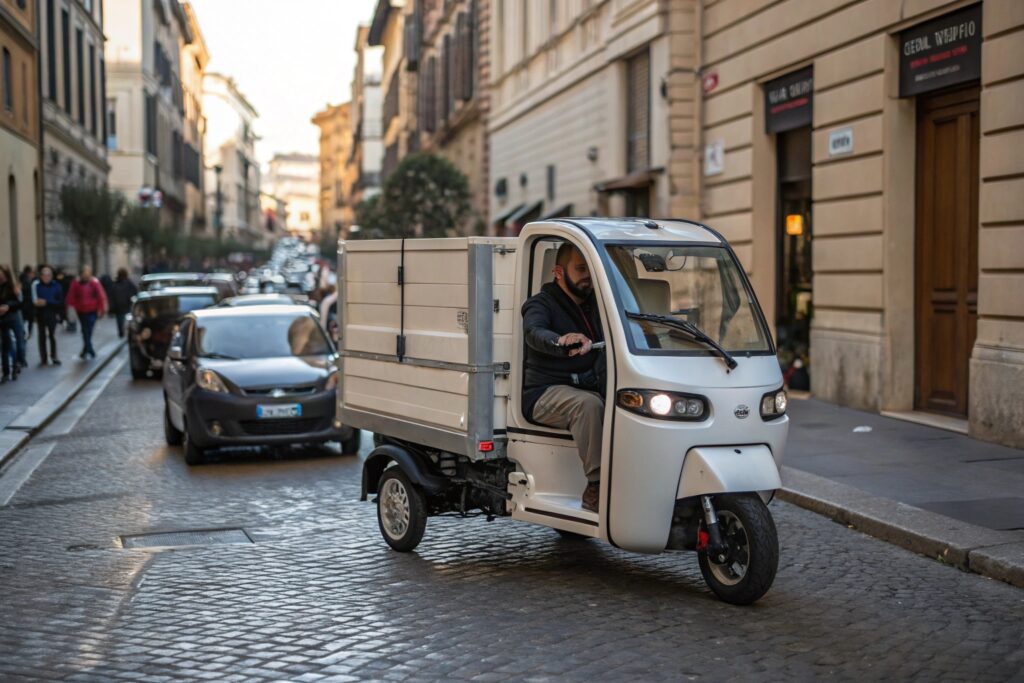
Struggling with high delivery costs? Vans get stuck in traffic and bikes can’t carry enough. A 3-wheel scooter pickup could be the perfect, cost-effective solution you’ve been missing. A 3-wheel scooter pickup excels in urban delivery by blending the cargo capacity of a small van with the agility of a motorbike. It significantly lowers operating […Ng
Paano itugma ang baterya sa isang electric 3 wheel pickup trak ng paghahatid ng trak?
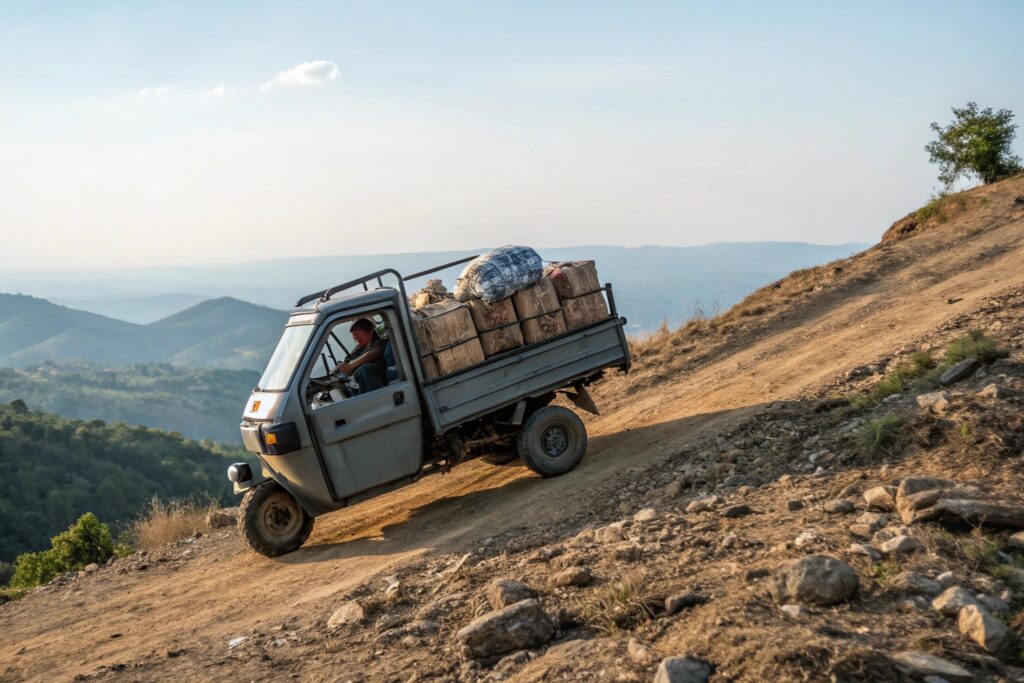
You bought an electric pickup truck, but it keeps running out of power mid-delivery. Or worse, you overspent on a huge battery you don’t even need, hurting your profit. The key is to strategically match the battery’s voltage (V) and capacity (Ah) to your business’s average daily route distance, payload, and local terrain. This ensures […Ng

